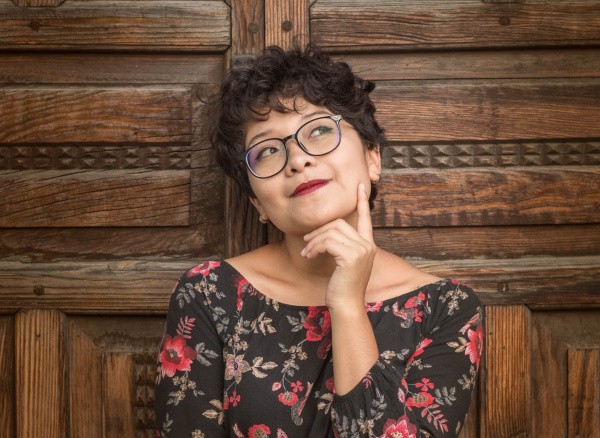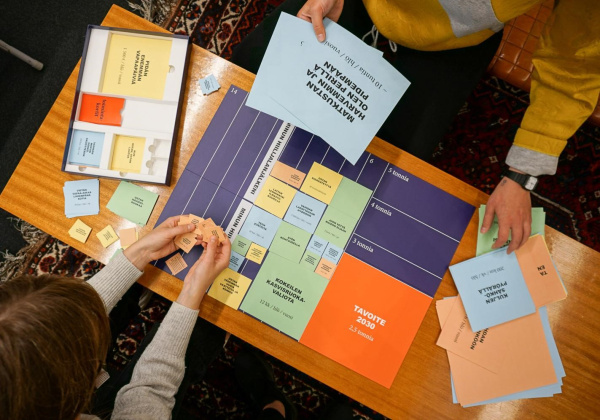
One of the heart pieces of the EU 1.5° Lifestyles project are the so-called Citizen Thinking Labs. Does this mean we lock up citizens into laboratories and experiment with their brains? No, of course not. We had a virtual coffee with our two project partners Lena Domröse and Maren Tornow from adelphi, who conceptualize the labs, to learn more about what a Citizen Thinking Lab looks like.
Question: What is a Citizen Thinking Lab and what is the goal of the labs you are currently planning?
Lena Domröse: Citizen Thinking Labs are workshops with citizens who are invited “as part of the real world” into our research project. With them we want to reflect and discuss the low carbon lifestyle options that we have analysed and quantified so far in order to gain insights into what is acceptable and what is not. For example, would people reduce their per capita floor space or switch from their private car to public transport and to which extent. If they don’t, why not? What hinders them or what does it need to make them change their minds?
Question: Who will participate in the labs and how do you reach out to the citizens?
Maren Tornow: This will be a bit different from country to country. We have five case study countries in our project: Sweden, Hungary, Latvia, Spain and Germany. Some of our partners use own communication channels, such as their website, social media etc. to recruit people. We and our Swedish partner (University of Lund) will use a recruitment agency. We plan to engage 20 to 25 people per lab and country – we will have one round of labs this year and then another one in 2023.

Question: What will your workshop with the citizens look like? And what will be in for them?
Maren Tornow: The workshop is usually one day long. In Germany, we have decided to hold it on Saturday to allow people from outside Berlin to travel on Friday after work. We also thought it would be too much to ask to take a day off for such a workshop, hence the weekend choice. The project will pay for the hotel and for a nice location, the catering etc.
We will start the day with an introduction of the participants and the projects objectives, but fairly quickly we will get very hands on. With our project partners we have developed a board game that we will play with the participants. It is based on the climate puzzle from our project partner D-mat but we have adjusted it for the project. We are in the middle of production, so I do not want to reveal too much, yet. I think this could be another blog article (😊). In any case, our participants will play it in pairs and find out what lifestyles they would need to adopt, change or continue to reduce their current footprint to 2,5t by 2030. I’d assume that their current footprint is bigger than 2,5t, but maybe we will have some surprises… The 2,5t target was agreed in the 2015 Paris Agreement, where governments pledged to reduce emissions to limit global warming below 1.5°C . This budget of emissions refers to 2,5t of CO2 equivalent per capita per year, roughly half of the average global footprint of every person on Earth today, and around a quarter of the emissions of the average Western European.
Lena Domröse: What is in for them? Well, the day will be fun and they will definitely learn a lot from the game and from the reflection and discussion process that follows the game. For example, how much of their footprint is due to their nutrition, their mobility patterns, their housing etc. In which field can they achieve the biggest change? But they will also discuss where their limits for changes are and why. And finally, we will see what must be done in society, business and by policy makers to facilitate low carbon lifestyle changes. Here, we touch upon the other layer of our project: Structures in which we all live and that influence our choices and lifestyles, for better or for worse.
Question: We are almost running out of time and space. In a nutshell: what will you do with the results?
Maren Tornow: The results will become part of our assessment of pathways and strategies to 1.5° lifestyles, i.e. we will lay open acceptance of households for lifestyle options, probability of implementation and policy measures needed to help households implement them. This will be done in a final report of the project accompanied by different communication activities.
Question: Thank you very much for the interview. Maybe we can speak again, when the first round of labs is over to discuss the first insights?
Lena Domröse: Yes, of course! It would be a pleasure.
Lena Domröse and Maren Tornow (adelphi) as interviewees, Luca Coscieme, Halliki Kreinin, and Jeremy Philipp as interviewers

